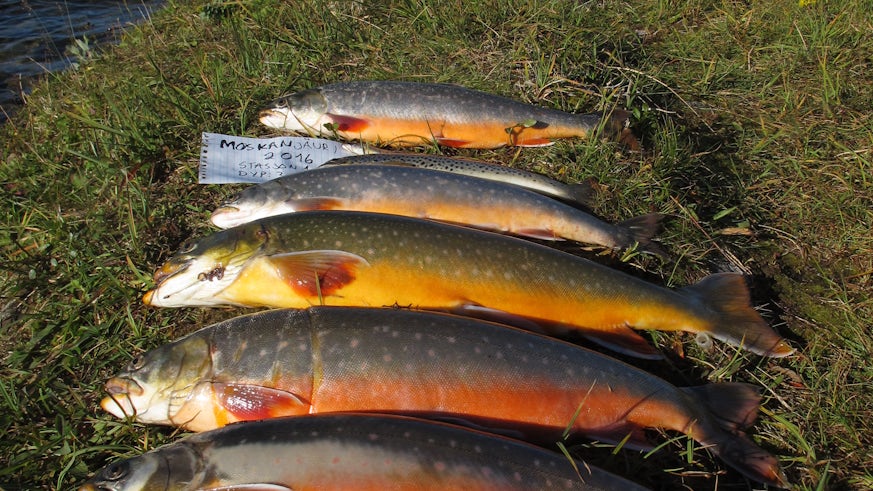Parasites as indicators of multiple stressors in freshwater ecosystems
15 Mai 2017

By examining fish-parasite dynamics, a Cardiff University research project aims to assess the combined impact of anthropogenic stressors (such as pollution or climate change) on freshwater ecosystems.
Led by Dr Paterson, an ecological parasitologist at Cardiff University School of Biosciences, the MULTISTRESS project will focus on predicting how increasing water temperature, nutrient inputs and common agricultural herbicides alter parasite burdens in Arctic charr, a freshwater fish species under severe decline in Welsh waters.
Dr Paterson’s expertise combines parasitology, freshwater ecology and invasive species to investigate how the environment shapes interactions between parasites and their hosts. Working with colleagues from the Arctic University of Norway (UiT), Dr Paterson will assess how multiple stressors shape the parasite burdens of European Arctic charr populations across their distribution from north Wales to sub-arctic Norway.
“Due to their complex life cycles, parasites are highly vulnerable to changes in their environment, making them ideal indicators of how ecosystems will respond to multiple stressors”, explained Dr Paterson.
“Whilst the combined effects of these stressors may have predictable additive effects (the sum of each individual effect), potential interactions between these stressors may drive complex synergisms (amplified effects) or antagonisms (reduced effects) that create “ecological surprises.”
The MULTISTRESS project will apply a novel multiple-scale approach to test the hypothesis that multiple stressors will have non-additive impacts on fish-parasite dynamics.
Dr Paterson outlined the potential impact and implications of the research project.

"This research will increase our understanding of multiple stressor impacts on freshwater ecosystems. It will also support the development of environmental management policies by improving our capacity to predict environmental change impacts."
This project has received funding from the European Union’s Horizon 2020 research and innovation programme under the Marie Skłodowska-Curie grant agreement No 663830.